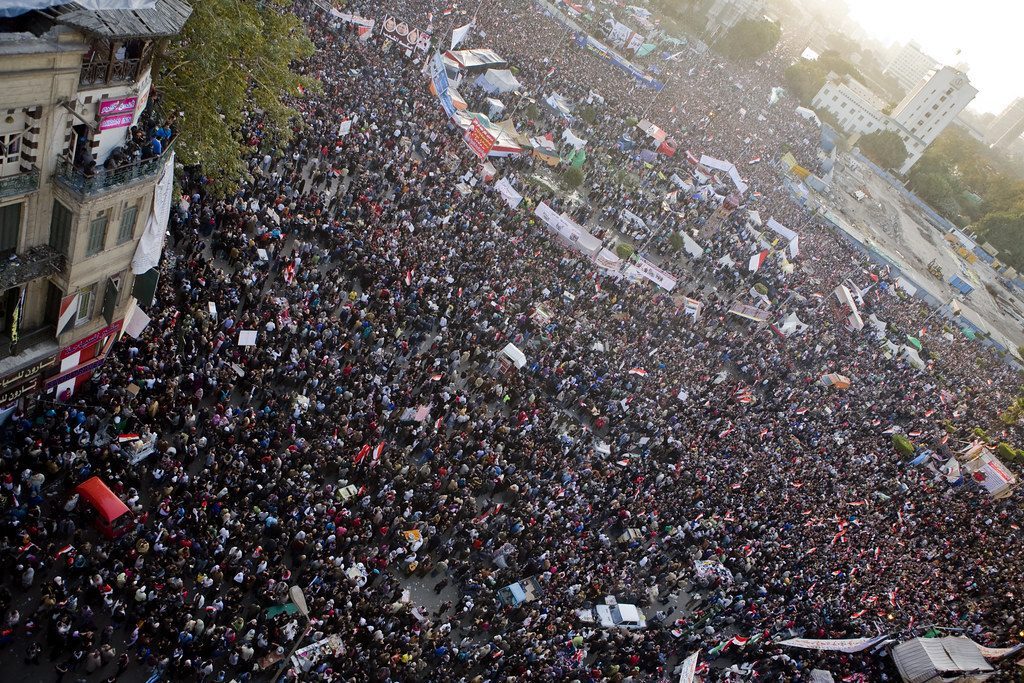Al Jazeera’s Arab Spring coverage provided much-needed elements of journalism for the region: transparency, authenticity, and timeliness. However, this posed a threat to some governments.
To mark the tenth anniversary of the January 25 Egypt uprising, Al Jazeera launched special, round-the-clock coverage looking back on the events that led to one of the most significant revolutions in the country’s history.
The Qatar-based media network’s bold move to cover the distinct event puts to bed a rumoured change in editorial policy that came with Cairo-Doha reconciliation earlier this month, experts said.
These claims were triggered by the posting of what was described as “positive” images of the United Arab Emirates and Saudi Arabia by the official Al Jazeera’s Documentary Twitter account earlier this month, just moments after both countries buried the hatchet with the signing of the Al-Ula Declaration.
A senior source who spoke to Doha News at the time said although the timing of the posts seemed suspicious, it did not in any way signify a change to Al Jazeera’s editorial.
The images were part of “a wider series that was unfortunately posted by staff members at the wrong time,” the source said.
“Al Jazeera is an independent media outlet and these images are not reflective of its editorial line on the latest developments in the region,” they added.
Dr. Nawaf Al Tamimi, a journalism professor at Doha Institute of Graduate Studies, told Doha News that although a change in the editorial line could be understandable, Qatar values Al Jazeera’s work.
“This relationship does not constitute any obstacle to Al Jazeera’s practice of its work in accordance with the principles of professional journalism, especially since Qatar understands and appreciates Al Jazeera ‘s need for independence, objectivity, integrity, and balance in the presentation of information,” Al Tamimi said.
The shuttering of Al Jazeera was among a list of 13 demands issued to Qatar by the blockading quartet in June 2017 when Saudi Arabia, the UAE, Bahrain and Egypt severed diplomatic ties with Doha.
Speaking after the reconciliation earlier this month, Qatar’s foreign minister, Mohammed bin Abdulrahman Al Thani confirmed Al Jazeera was not part of any discussions or negotiations that led to the Al Ula declaration, backing claims that the former blockading quarter had since ditched the list of demands in latest efforts to end the Gulf dispute.
Despite this, rumours once again resurfaced this week after two Egyptian intelligence sources claimed a Qatari foreign ministry official pledged in a meeting with Saudi and Emirati government representatives that Qatar would not interfere with Egypt’s internal affairs, Reuters reported.
This allegedly included a pledge by the Qatari official for a change in Al Jazeera’s editorial policy with regards to Egypt. Soon after, a Qatari official denied the allegations and said such pledges were not made.
Read also: Qatar insists Al Jazeera not part of reconciliation with Egypt.
Just days later, the flagship network seemingly went all out with special coverage of the January 25 revolution, both on its Arabic and English television channels, as well as across its social media platforms.
Among the content published were op-eds critical of Egypt’s repressive authorities, a timeline of events from the 2011 revolution, as well as images showcasing the brutal crackdown on dissent.
“A lot has been said about Al Jazeera supposedly changing its editorial line following the Al Ulla declaration. Our editorial policy has always been independent and will remain so. That’s what set us apart from our competitors during the Arab spring 10 years ago and it’s what makes us still the voice of the voiceless,” senior Al Jazeera staff told Doha news on Monday.
However, former professor at American University in Cairo, Dr. Mohamad Hamas Elmasry, said it may be too soon to tell.
“It’s true that AJ’s Egypt coverage doesn’t appear to have changed at all since an agreement was reached to end the blockade and resume diplomatic relations. It’s still early, however, he told Doha News.
“It’s worth monitoring coverage patterns and framing for the next several months, at least. It’ll also be interesting to examine whether AJ’s coverage of Saudi Arabia and the UAE, the other major parties to the blockade, changes at all,” he added.
Commenting on the future of Al Jazeera in an ever-evolving region, Dr. Nawaf said: “one only hopes that any changes in the regional political arena would not herald the end of what were courageous changes and great advancements in the history of the Arab professional journalism”.
Follow Doha News on Twitter, Instagram, Facebook and Youtube







